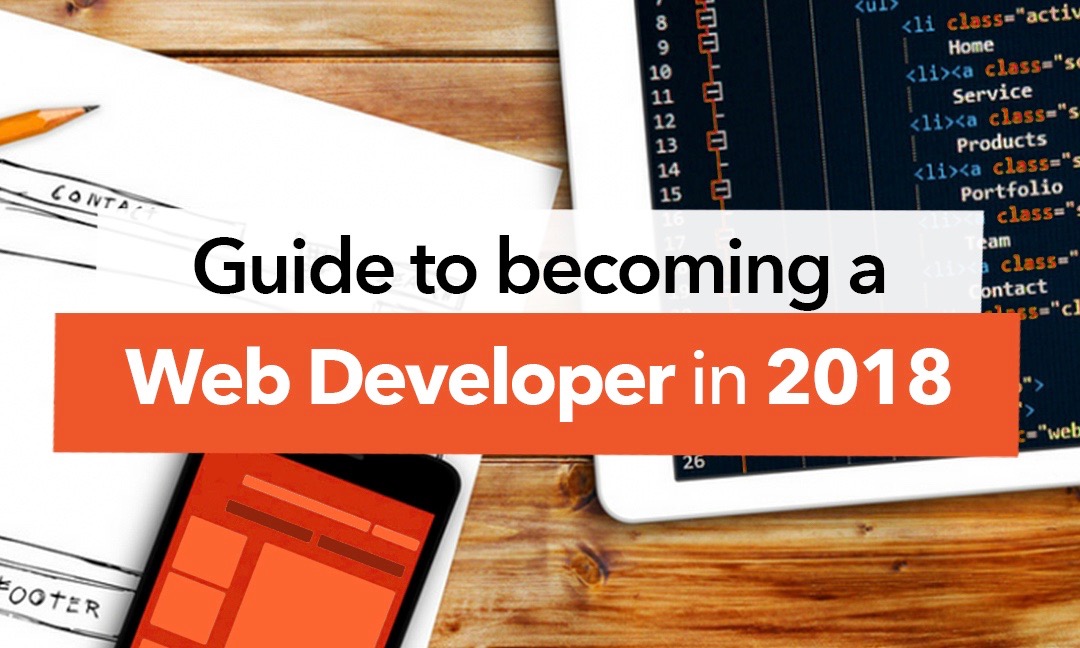The Complete Guide to Becoming a Web Developer
Where to Begin Your Programming Journey
It’s important to first figure out your motivations and goals for wanting to learn programming. Are you interested in coding as a hobby, to earn some extra money on the side, or to pursue it as a full-time career? There’s no “right” answer, but defining your purpose will help guide your learning path.
Look Inward to Find Your Motivation
Take some time for self-reflection to understand why you want to start this journey. Common motivations include a desire for money, wanting a new career, or having an idea for developing software applications. However, your motivations don’t need to be anything specific - simply having a general interest in technology and problem-solving is enough of a starting place. Don’t worry if your reasons seem unclear at first, clarity will come with experience.
Paths for Beginners to Get Started
Once you understand your motivations, you’ll need to decide how to actually begin learning. If you simply want to explore the field casually or build fun projects as a hobby, free online courses and tutorial videos are excellent options. However, if you want to potentially pursue programming professionally, a more structured education pathway like the OSSU computer science curriculum will provide a well-rounded foundation. Both a hands-on approach and learning core concepts are important, so try a little of both.
Picking the Right Programming Languages
An essential part of your learning journey is selecting programming languages to study. Here are some guidelines on good choices for beginners:
Start with Python
As a beginner, learning Python is highly recommended. It’s easy to learn, widely versatile for many types of coding projects, and has a massive ecosystem of libraries and tutorials available. Python allows you to focus on core programming principles without excessive syntax complexity.
Pick Up HTML/CSS Next
Once comfortable with Python, move onto the basics of web development - HTML and CSS. These languages are essential for building webpages and understanding modern website design. HTML provides structure and content while CSS controls style and layout. Together they form the fundamental building blocks of the internet.
JavaScript Is a Must for Web Development
No modern web developer can avoid JavaScript. It’s the programming language that brings interactivity to websites. After gaining experience with HTML/CSS, take on JavaScript to learn how to add dynamic behavior and responsive interfaces. JavaScript is also highly transferable, with uses well beyond just web development.
Consider Java or C++ for Deeper Programming Skills
For those interested in more advanced computer science concepts, Java and C++ are excellent options to study after mastering Python and JavaScript basics. Both help foster strong programming discipline and prepares one for backend and systems-level software development. Knowledge of these compiled languages also opens up many high-paying job opportunities.
Exploring Frontend vs Backend Development
Web development careers fall under one of two main categories - frontend or backend. Understanding their key differences will help you decide which path aligns best with your skills and interests:
Frontend Development Involves Web Design and Client-Side Coding
Frontend developers handle everything visible in websites and web applications. Strong skills in HTML, CSS and JavaScript are required to create attractive and responsive user interfaces. Frontend work also involves visual design principles and translating mockups/wireframes into live pages. Creativity paired with technical abilities are important traits for frontend success.
Backend Development Focuses on Server-Side Logic and Databases
In contrast, backend developers operate behind the scenes crafting the internal workings and data processes of websites. Their primary tasks revolve around writing application backend code in languages like Python, Java, PHP or C# to manage databases, backend APIs and server configurations. Backend coders focus more on logic, infrastructure and optimization over visual aspects. Problem-solving skills and systematic thinking are core strengths for backend roles.
Learning Paths for Web Development Specialization
With frontend vs backend now understood, here are example learning roadmaps for each specialization:
Frontend-Focused Pathway
Following an initial foundation of Python, HTML/CSS and JavaScript fundamentals, focus on frameworks like React, Vue or Angular for building modern single-page applications. Pair frontend skills with design courses covering UX principles, information architecture and responsive design practices. Also explore in-demand technologies around animation, accessibility and performance optimization.
Backend-Focused Curriculum
After a base of Python and databases, concentrate on backend frameworks like Node.js, Django or Laravel to develop fullstack solutions. Learn DevOps best-practices through containers, infrastructure as code and continuous delivery pipelines. Study algorithms, data structures, security and scalable system architectures. Experienced backend developers also expand into areas like systems programming, distributed computing and machine learning.
Continuing Your Education and Practice
No matter which development path you choose, ongoing learning and practice are essential to stay up-to-date in this fast-paced industry. Here are a few helpful tips:
Take Online Courses from Trusted Providers
Supplement self-study with structured online classes from reputable sources like Coursera, EdX and Udemy. Courses allow digging deeper into specific technologies and challenging your skills with assignments. Certifications can also boost job prospects.
Build Practice Projects from Scratch
Nothing cements programming skills more effectively than developing real applications without tutorials holding your hand. Pick ideas that interest you and build progressively more advanced programs from start to finish. Projects demonstrate initiative and abilities to employers.
Contribute to Open Source Software
Put your skills to good use by assisting open source projects. You’ll collaborate with professionals, gain visibility amongst hiring managers and improve debugging/process skills in the open development workflow. Open source is also highly valued when job hunting. With commitment to lifelong learning and focus, the road ahead in web development is vibrant and fulfilling. Coding is both intellectually stimulating and creatively rewarding. I wish you the very best moving forward in your programming journey! 
